It is one of those marvelous, unexpected scientific discoveries. While researching an aspect of heart disease and stroke, researchers at the University of British Columbia stumbled upon a way to slow ageing of the skin caused by exposure to the sun.
David Granville, PhD, is a professor at the University of British Columbia, Department of Pathology and Laboratory Medicine, and principal investigator in the Centre for Heart Lung Innovation of UBC and St. Paul’s Hospital,
Listen
Professor Granville and team, which included post-doctoral fellow Leigh Parkinson, were studying hardening and narrowing of arteries and the role of a particular enzyme, Granzyme B, in relation to atherosclerosis and heart attacks.
It’s long been known that exposure to sun ages the skin. What the researchers accidently found out is that by blocking Granzyme B, the skin retains its smoothness even after long exposure to UV light
Their findings are published in the online science journal, Aging Cell
The team produced mice without the gene that produces Granzyme-B, an enzyme that immune cells use to destroy harmful pathogens. Vital within cells, if it gets out of the cell, it starts to breakdown skin structure.
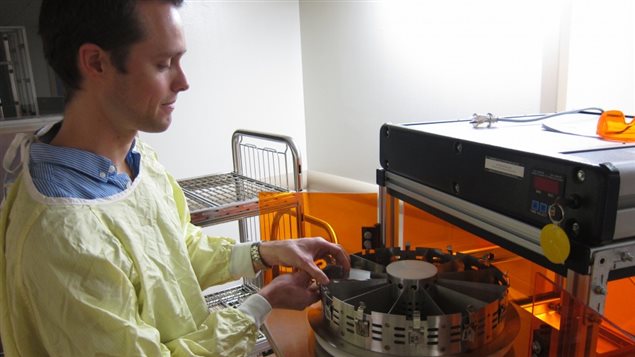
The researchers were investigating whether mice without the gene were more resistant to weakening of blood vessels, a major cause of heart attacks in humans.
In a surprise twist of fate, they found that the mice without the enzyme were more resistant to damaged skin from exposure to UV.
It’s known that about 80 percent of ageing, wrinkled skin is due to sunlight exposure.
ViDA Therapeutics, a company co-founded by Dr. Granville, is currently developing a Granzyme-B inhibitor based on technology licensed from UBC
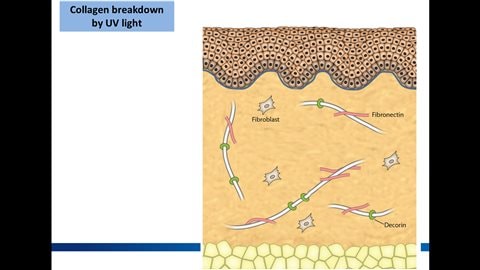
The drug might also be used for other life-threatening conditions, caused by the breakdown of collagen and other proteins that provide structure to blood vessels and lung passages.
For example, Granville and team are continuing to examine the effects of Granzyme B on aneurysms, especially of the aorta, the largest blood vessel in the human body.
“When we inhibit Granzyme B in that model we can affect the collagen organization and strength of collagen in the aorta and prevent rupturing,” he said.
Of course another benefit could potentially be the cosmetic market to reduce aging. Although doubtful it could repair damaged skin, it could reduce the effects of ageing caused by sunlight exposure.
The Canadian Institutes of Health Research (CIHR), Genome BC, and Mitacs financially support the research.
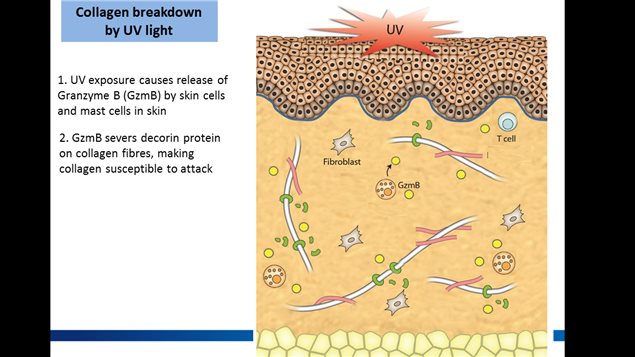
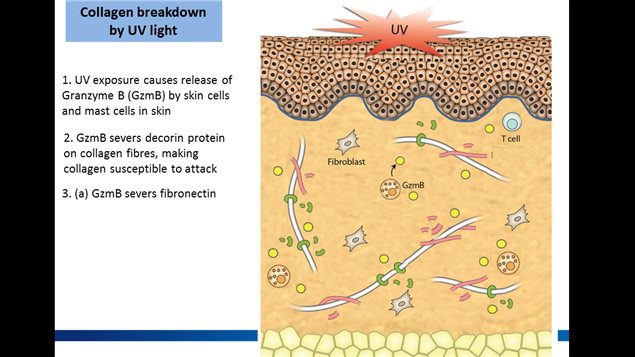
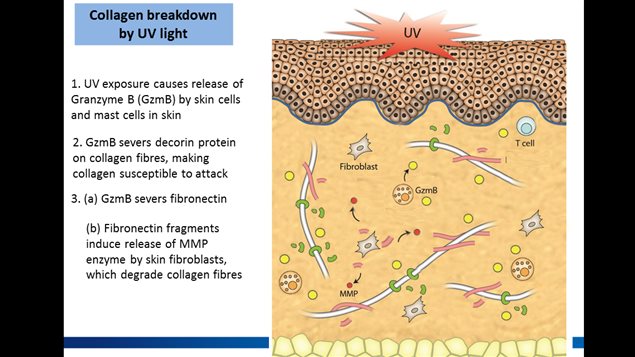
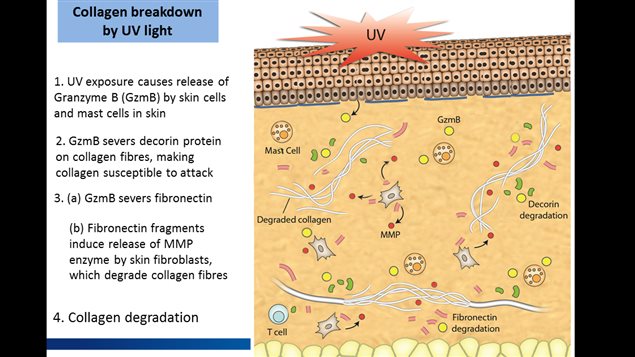
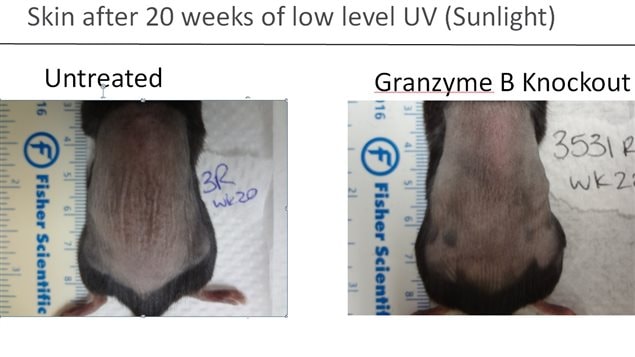






For reasons beyond our control, and for an undetermined period of time, our comment section is now closed. However, our social networks remain open to your contributions.